The Ethical Trading Initiative was founded in 1998 in response to growing concerns about the poor pay and conditions of workers in many international supply chains. Since then we have helped change the lives of millions of workers by driving improvements in company policies and practices and through campaigning for change.
1998
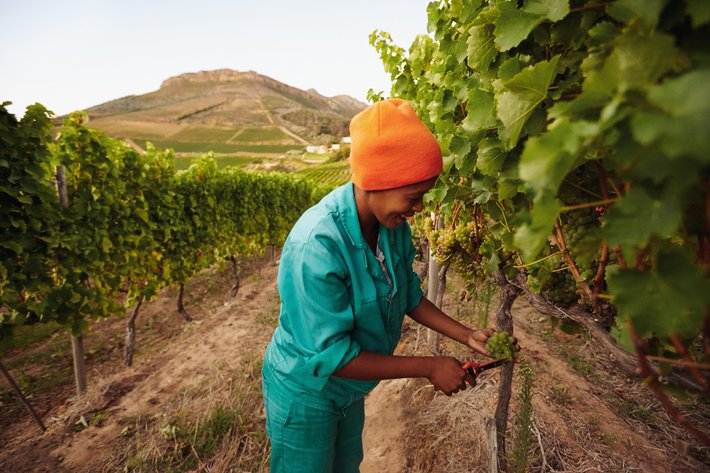
In January 1998, a small number of British retailers, aid agencies, workers’ rights organisations and trade unions come together to promote fundamental human rights in global supply chains. Subsequently, under the pivotal leadership of Secretary of State for International Development Clare Short, ETI is incorporated as a not-for-profit company on 9th June. We receive start-up grants from the Department for International Development and the Department of Trade and Industry.
From the very start, corporate, NGO and trade union members agree that for ETI to be successful, they must collaborate to identify and promote good practice. Our tripartite approach is born.
In 1998, our first task is to negotiate and draw up a model code of conduct – a Base Code which reflects internationally agreed labour standards – and to approve a set of implementation principles that will lead to best practice in applying the Code.
Today, the Base Code remains almost identical to what it was in 1998. So too is the expectation on members: to work towards the continuous improvement of their ethical trade policies and practices and to report annually against these.
More broadly, the Base Code is still viewed as a gold standard and many thousands of companies work towards it, whether members or not.
Everyone agrees that something should and could be done about the working conditions of people … who produce goods for our High Street. The Ethical Trading Initiative is an important first step and will provide a common approach to enable change. Dino Adriano, Chief Executive, J Sainsburys PLC
- Our five pioneering company members are ASDA, Premier Brands, The Body Shop, Littlewoods and Sainsbury's. By the end of the year they are joined by 7 others.
- Oxfam, Christian Aid and the Fairtrade Foundation are amongst our founding NGO members.
- The Trades Union Congress (TUC), the International Confederation of Free Trade Unions (now ITUC), the International Union of Foodworkers (IUF) and the International Textile, Garment and Leather Workers' Federation (now IndustriALL Global Union) are our first trade union members.
1999
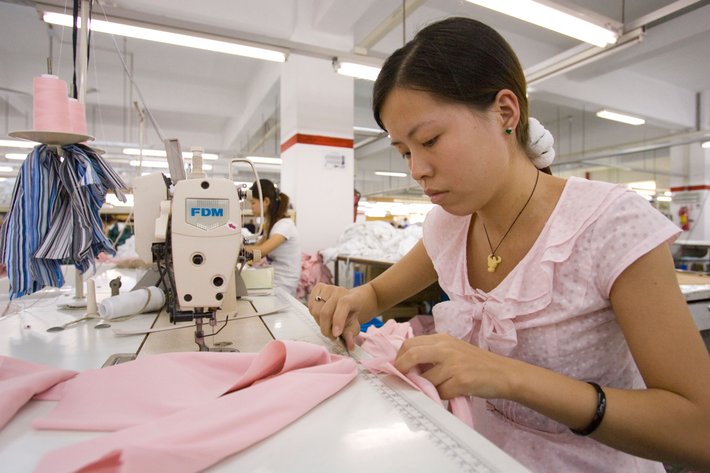
In line with our initial ethos, Learning by Doing, we set up three pilot programmes in members’ supply chains – in China, South Africa, and Zambia and Zimbabwe.
Supply chain programmes remain a vital part of the ETI offer, but have evolved to take into account the ever changing business and human rights environment. The first three supply chain projects covered clothing from China, wine from South Africa and horticulture in Zambia and Zimbabwe. But in 1999, their purpose was very specific: to trial different methods of inspection, monitoring and verification and to conduct evaluations.
Since then, our programmes have greatly expanded their focus. We now work where there are good opportunities to learn wider lessons and to embed better understanding of the links between business and human rights – as well as to address specific issues such as the difficulties Syrian refugees face in obtaining decent work in Turkey.
2000
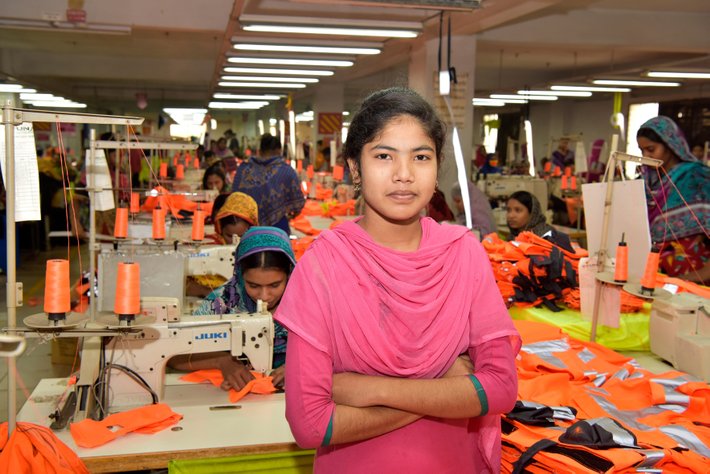
In the UK, ETI members acknowledge the scale of the task ahead as they start to map and monitor labour standards in their supply chains. Meanwhile, our sister organisation, the Norwegian Ethical Trading Initiative (IEH) is established, representing Norwegian NGOs, trade unions, businesses and the Enterprise Federation of Norway.
In 2000, the world adopts eight Millennium Development Goals focussed on reducing poverty. The UN’s ask of companies is that they join the Global Compact. This emphasises the implementation of responsible business practices around human rights, labour standards, environmental performance and anti-corruption.
- Company members number 24, rising by 10 members during the year.
2001
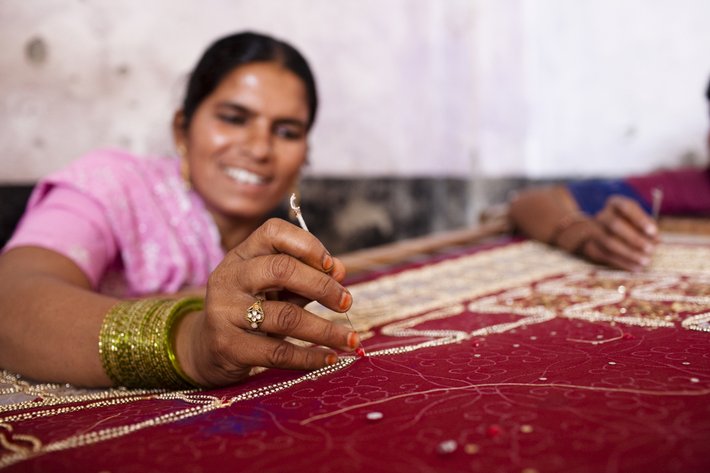
Retail members become increasingly concerned about the treatment of homeworkers in their supply chains. They realise that homeworkers carry out essential tasks such as embroidery, stitching, assembly and packaging, but that retail oversight is either limited or non-existent. A group come together and ask for advice and greater guidance on how to interpret, monitor and implement the Base Code for homeworkers.
Following discussions with specialist NGOs and trade unions, our first tripartite working group, the Homeworkers Working Group, is set up. At the start of 2002, the group commissions a review of current knowledge and practice in applying corporate codes of conduct to homeworkers. We agree to produce practical guidelines based on the experience of members and to work together to address key issues.
This example of collaboration and cooperation is a precursor to all future ETI working groups, such as our working groups that address migrant labour in Thailand’s seafood and Italy’s tomato sectors.
- In response to demand from members, we introduce training seminars and publish an ethical trade workbook.
- By the end of 2001 our membership numbers 29 companies, 4 trade union confederations and 15 NGOs.
2002

NGO members investigate wages paid to homeworkers making Christmas crackers in South Wales and discover shockingly low rates of pay – in some cases as little as £1.50 an hour. They find that a government regulation known as the ‘four fifths rule', and originally intended to protect slower-piece rate workers, has the effect of allowing employers to pay only 80 per cent of the national minimum wage. We ask retail members of our Homeworkers Working Group to support an advocacy campaign led by the National Group on Homeworking to amend the law.
Between 2002 and 2004, the ETI Homeworker Group, led by NGOs representing homeworkers, and the TUC lobby the Department of Trade and Industry (DTI) to introduce a fairer system for piece work. They also urge that statutory employment rights be conferred on homeworkers.
The DTI agrees to amend National Minimum Wage Regulations in 2004 and clarifies its application to homeworkers. It phases in a new statutory system for setting piece-rates, for homeworkers and factory workers alike, through an accredited work measurement system.
The support of the retailers is a significant factor in the amendment and improvement of the National Minimum Wage Regulations. This represents a significant advance for homeworkers throughout the UK. Recognising that government legislation is vital, advocating for legal reform becomes another key strand of our work.
- We publish a draft Homeworkers Guide.
- Members report on 7,731 audits undertaken and 1,200 improvement actions at supplier sites.
2003
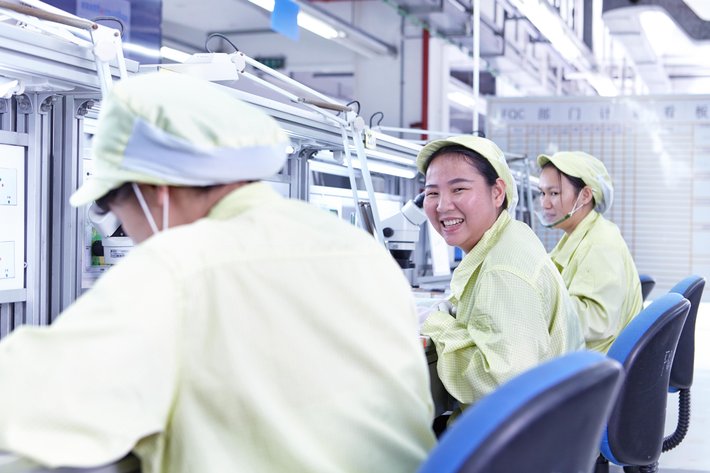
In March 2003, we set up a tripartite China Working Group to support our members sourcing from China. We also establish a China office in Hong Kong.
In addition to supporting members as they seek to improve local working conditions, we pioneer helping local suppliers understand ETI Base Code compliance and the importance of developing sustainable business goals. The China office subsequently becomes a model for other ETI programme offices that are later set up in Bangladesh, India and Turkey.
- Company membership rises to 35.
2004
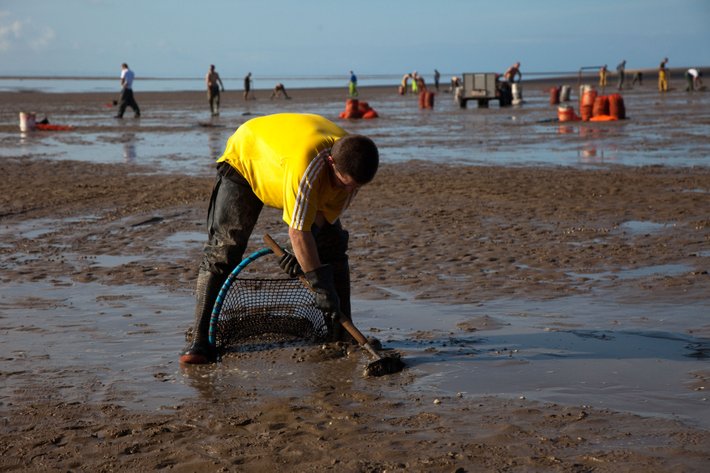
On the evening of 5 February 2004 at Morecambe Bay, 23 Chinese immigrant labourers trafficked illegally into the UK via Chinese triads drown as they pick cockles. The workers are unfamiliar with local geography and sea conditions and are cut off by the incoming tide. The tragedy leads to a two-year ETI-led lobbying campaign for the establishment of the Gangmasters Licensing Authority.
Following the Morecambe Bay tragedy, we campaign for better legal protection for vulnerable workers in the UK. We lead a cross-industry alliance to lobby the government to introduce extra legal protection for up to 600,000 workers in the UK food industry. This campaign results in the Gangmaster (Licensing) Act 2006.
Our work globally to protect vulnerable workers continues. We have, for example, recently published a Vulnerable Workers Toolkit as well as Due Diligence Guidance and advised companies on the export of state sponsored forced labour from North Korea.
- By the end of 2004, we have 36 corporate members.
2005
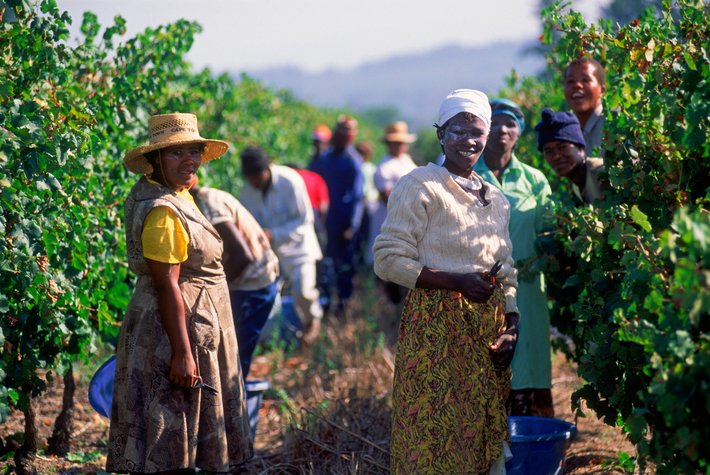
At the request of members, we join forces with the South Africa-based Wine and Agricultural Industry Ethical Trade Association (WIETA). We develop locally run supervisor training in fruit packhouses and farms. Run over several years, the training will eventually reach more than 5,000 supervisors, digging deep into the highly sensitive issues of sexual harassment and discrimination while building management skills and confidence.
WIETA was born out of ETI’s 1999 South Africa pilot project, and the development and growth of the relationship in 2005 is indicative of ETI’s partnership and alliance-building approach. It is also the beginnings of a shift in focus, emphasising the importance we place on local leadership in sourcing countries.
WIETA itself became fully independent in 2002 and was the first ever local multi-stakeholder initiative to tackle workers' conditions, bringing together the private sector, labour and civil society organisations in South Africa’s wine and agricultural sectors.
In the South African context, it's important not to force people to do things. It's about wooing people, building trusting relationships and winning over their confidence. Desmiline Minyi, WIETA trainer, speaking on the fifth anniversary of the training relationship with ETI
- Three million workers are covered by ETI company members' codes of conduct.
- We offer 4,500 hours of training on ethical trade.
2006
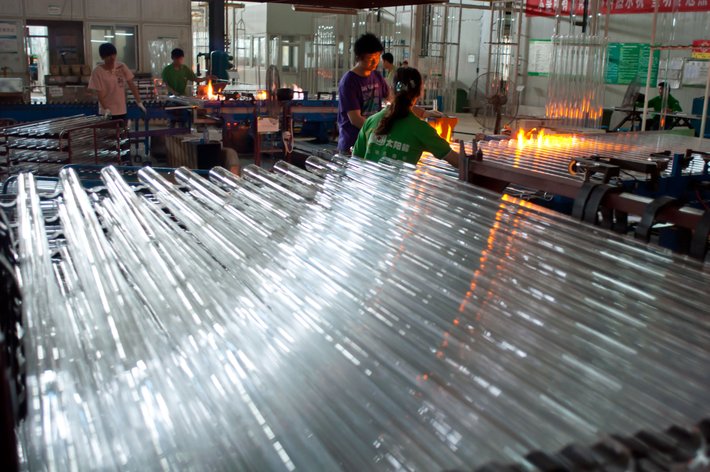
In March 2006, over 300 children, some as young as 12 are found working in two glassware factories in Shanxi province in China. They supply four ETI member companies amongst others, and we are asked to become involved in remediation efforts.
We steer members sourcing from the glassware companies to collaborate with their suppliers and other retailers to agree a joint response plan. This involves removing children from hazardous work, offering remediation and in some cases getting them back into education. Via a local NGO, young people are assisted in returning to college to learn skills such as welding, computing and cookery.
Bringing companies together to broker resolutions and facilitate remediation remains an important part of our approach. As such we seek to promote engagement and reach practical collaborative solutions, rather than find fault.
- ETI has 43 corporate members with a combined turnover of £107 billion.
- 30,554 suppliers are covered by members' ethical trade activities.
2007

In 2007, we join those voices pointing out that the UK public sector is sourcing £125 billion worth of goods and services annually, much of this from overseas. Having lobbied the government to include consideration of workers' rights in public procurement, we are asked to partner with the NHS Purchasing and Supply Agency to help them develop a policy framework for ethical procurement and the tools to implement it.
Following the initial 2007 relationship, in 2011 and 2017, we again team up with the Department of Health as well as the British Medical Association to produce and then revise an Ethical Procurement for Health Workbook. This reinforces the importance of ethical procurement in the health sector, particularly in the NHS supply chain. Crucially, the workbook builds awareness of labour risks in supply chains so that these can be addressed proactively and constructively.
- In 2007 our membership grows to 52 companies with leverage over more than 38,000 suppliers.
- Members employ over 400 full-time equivalent staff in ethical trade teams.
- £14 million is spent on ethical trade activities.
2008
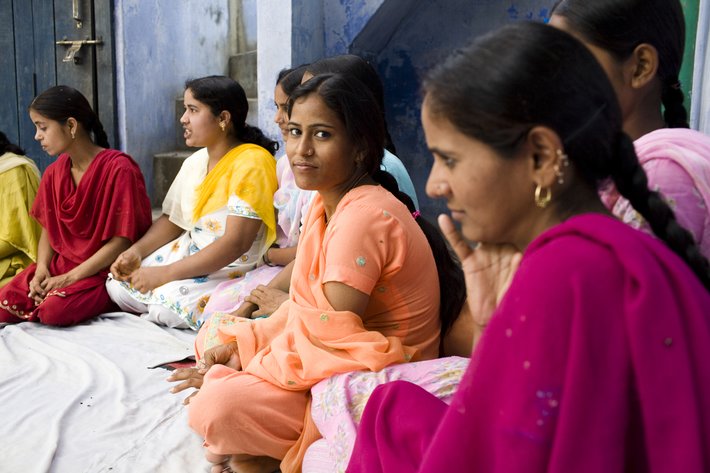
The ETI-supported National Homeworker Group in Uttar Pradesh, India reaches 15,000 homeworkers. Initiatives include linking workers to state provisions such as healthcare, accident insurance and credit schemes through ID cards (so called artisan cards). An increased sense of confidence and status is reported.
The reported improvements in homeworker conditions in India are a direct result of our Working Group’s decision to expand its remit to include best practice on how to improve the lives of homeworkers around the world. Corporate members start to routinely use its guidelines to trace hidden homeworkers in their supply chains, organise training for buyers and set out policies for company boards…
I have now started keeping a record book and make sure every transaction is recorded in it. It is evidence for the work we have done and the payments received. Ayesha, a homeworker attached to the Bareilly Homeworker Group in Uttar Pradesh, India
- The Danish Ethical Trade Initiative (DIEH) is launched in February 2008. As in the UK and Norway, it brings together business, the trade union movement and civil society.
2009
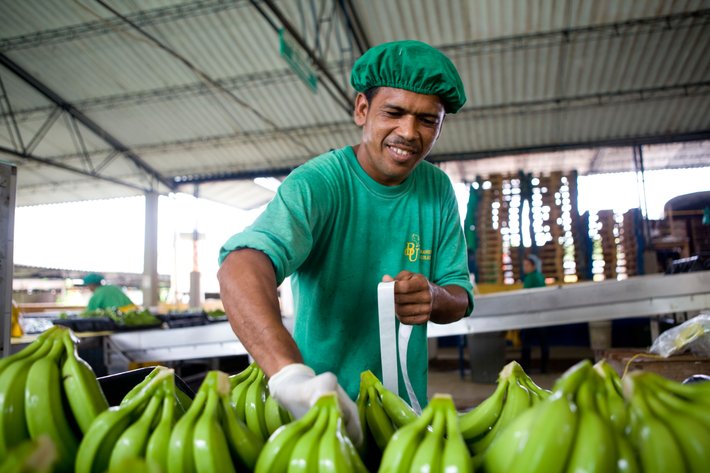
As part of our efforts to build a culture of respect at work, we start to directly target suppliers with introductory ethical trade skills training designed specifically for them. The pilot offer around becoming better managers is taken up by two large apparel and textiles suppliers in China and managers of banana plantations in the Dominican Republic and the Windward Islands.
In China, we train 996 workers and 34 managers on how to communicate constructively with each other to resolve workplace issues. We also deliver three days of bespoke workshops in the Caribbean concentrating on two main areas: labour law and discrimination against women. We train 70 site supervisors and their managers, who collectively oversee an estimated 4,000 workers.
We continue to offer training to suppliers globally. This ranges from training on the basics of ethical trade, to modern slavery and social dialogue. And in China, we have recently started to offer training on social insurance – on the importance of pension provision and other worker benefits.
The training helped elected worker representatives develop a new sense of camaraderie and confidence. It was encouraging to see them starting to ask insightful questions about retailers' business practices and what ETI is trying to achieve. Dimitri Kessler, ETI China Representative
- 10 new companies join ETI.
- 8.6 million workers in member companies supply chains.
- 1,700 people trained, including 304 supplier staff.
2010

We join the Play Fair 2012 alliance lobbying the London Olympic Games Organising Committee (LOCOG) to adopt a strong ethical approach to the 2012 London Olympic Games. As part of the alliance, we play a key role in helping the Committee understand the importance of a continuous improvement approach to labour standards.
LOCOG adopts the ETI Base Code and, for the first time in Olympic history, a mechanism is developed so that workers who produce Olympics merchandise can, if necessary, complain about their pay and conditions.
In 2010, we also see the first signs of legislative interest in addressing modern slavery. In September, the Governor of California signs into law the California Transparency in Supply Chains Act 2010 (effective from January 2012). This requires manufacturers and retailers doing business in California to disclose information on how they address the issues of slavery and human trafficking in their supply chains.
- There is a 17% increase in corporate membership from 60 to 70 companies.
- Members spend £23 million on ethical trade.
- Three quarters of ETI members demonstrate progress in applying ETI management principles across their businesses.
2011
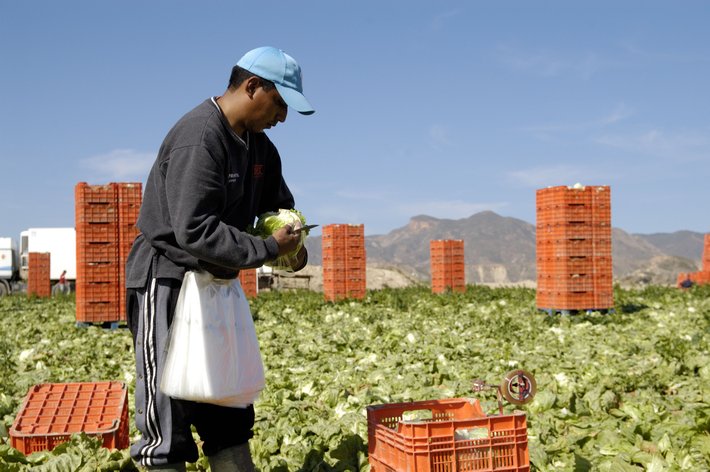
We ask company members to work collectively in a limited number of strategic supply chains to drive sustained change for workers within three product categories - the Apparel and Textiles, Food and Farming and Hard Goods and Household sectors.
Addressing workers' issues in the context in which they occur enables us to develop models for wider change. It is agreed that lessons captured in the course of the collective interventions in each supply chain should be shared widely in order to maximise impact in tackling the root causes of low pay and poor working conditions.
Importantly, in June, there is a step change in international thinking on business and human rights. The UN’s Human Rights Council unanimously approve the Guiding Principles for Business and Human Rights, the UNGPs.
The UNGP framework is the first corporate human rights responsibility initiative to be endorsed by the UN. It establishes a common global standard for preventing and addressing adverse human rights impacts of business activity. It also puts forward an approach based on due diligence.
- By the end of the year our membership has grown to 75 companies.
- 9.8 million workers are reached by member companies' ethical trade activities.
2012
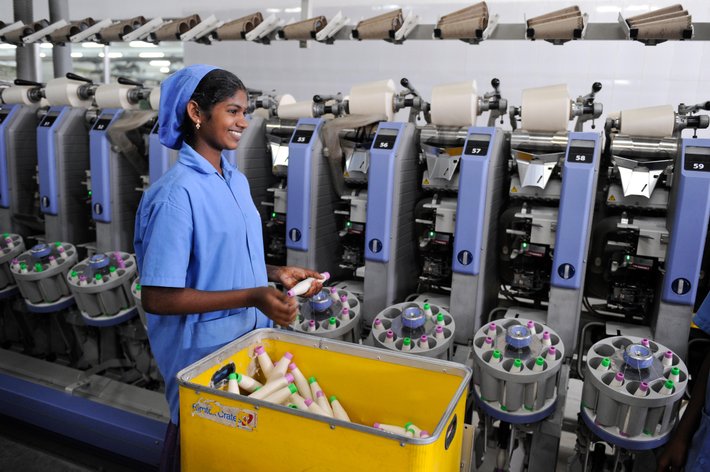
We formally launch two long-term supply chain programmes in India, in Tamil Nadu's spinning mills and Rajasthan's sandstone yards. We bring together members, local suppliers, workers and their representatives to agree the direction of travel to drive positive sustainable change for workers.
We have always been aware that global supply chains are complex and that sustained change takes time. It is why we choose our entry points with care. In Tamil Nadu, we initially focus on women's health in factories while campaigning against Sumangali schemes (bonded labour disguised as apprenticeships). In Rajasthan, we start by concentrating on occupational safety and health.
In both, starting with health-related work helped us to build trust among stakeholders. But, as the programmes have developed, we are tackling wider workers’ rights issues.
The Rajasthan Stone Working Group has led the way in moving forward ETI’s new programme approach. Progress in this sector is a huge challenge, since so many of the workers at the bottom of the supply chains are invisible. But I am optimistic that however difficult the task, the group will address the rights of workers in every tier of the industry. Meena Varma, Director, Dalit Solidarity Network UK
- The scale of ETI’s activities and its ‘footprint’ continues to expand with members reporting 17,700 audits and 126,000 individual improvement actions at supplier sites.
- Membership remains at 75 corporate members overall. However, 16 new companies join during the year.
2013
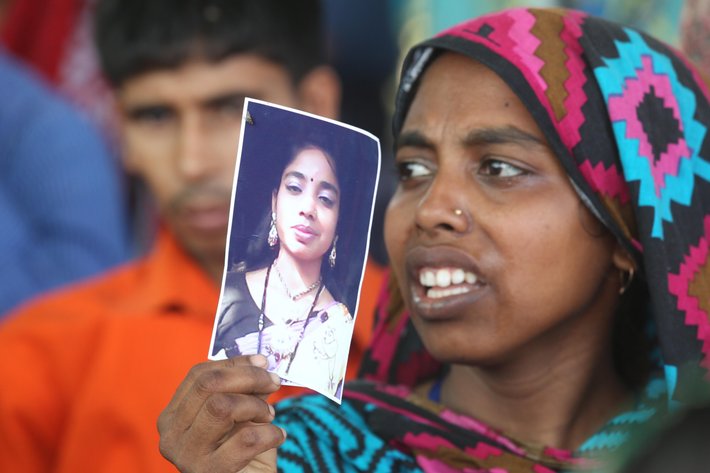
In January, following a factory fire in Tazreen, Bangladesh where over 100 workers died, chief executives from 24 member companies take action. They write to the Bangladesh government under our auspices requesting urgent action on factory safety. The letter is in support of the ILO’s efforts to develop a national action plan on fire safety in the garment sector. Then, in April, Rana Plaza happens…
The 8-storey Rana Plaza factory building collapse results in over 1,000 deaths and 2,500 injuries. It sends shockwaves through the international garment industry, galvanising collaborative action.
With a history of championing workers’ rights in Bangladesh’s garment sector (we helped to support a rise in the minimum wage twice in the preceding six years), we provide a forum for IndustriALL to present its proposed Accord on Fire and Building Safety in Bangladesh to member companies. The Accord (and the American-backed Alliance) are founded and drive forward legally binding changes in factory safety.
We also realise that more needs to be done to address unfair labour practices around wages, working conditions and worker representation. The following year, with our Danish and Norwegian counterparts, we therefore initiate a social dialogue project that focuses on worker empowerment.
Since then, as our social dialogue project has developed. An independent evaluation has found improved understanding of rights and responsibilities. The researchers also say that it has enhanced communication in an industry that too often exhibits deeply entrenched divisions between factory owners, their workers and workers’ representatives.
ETI ensured that a number of UK and European brands and retailers were among the first sourcing from Bangladesh to commit to this new broad coalition with IndustriALL, UNI Global and leading NGOs. Jyrki Raina, General Secretary, IndustriALL Global Union
- Membership rises to 84 company members with a £180 billion turnover.
2014
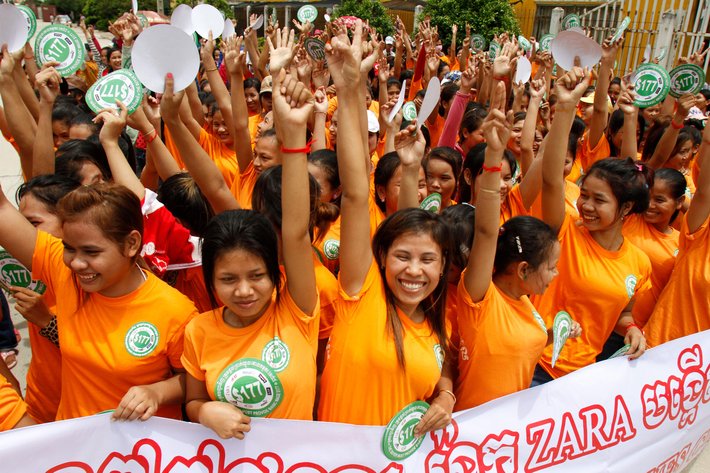
In January, Cambodia’s garment and footwear sector sees violent clashes between police and workers demonstrating over pay, hours and benefits. We facilitate the efforts of 30 international brands and global trade unions as they seek to engage with the Cambodian government over its duty to protect workers’ rights.
The UNGPs (see 2011) outline a clear role for states to protect human rights within the business environment. This formally allows progressive companies to lobby governments for better working conditions in their supply chains. It also enables ETI and our members to collectively influence governments when workers’ rights are under attack. In Cambodia, this means working closely with local experts to convene meetings between international brands, global trade unions and the government.
At meetings with senior ministers, we acknowledge the importance of the garment and footwear industry to Cambodia, but also advise a common need to address calls for a new trade union law and an inclusive predictable national minimum wage setting mechanism. This advocacy is credited with helping bring about a 28% increase in Cambodian garment workers’ salaries in January 2015. Despite ongoing human rights difficulties, we and our members continue in our attempts to influence Cambodia and other governments on the rights enshrined in our Base Code and in the UNGPs.
- 367,000 workers in Bangladesh, India and South Africa reached by ETI programmes see their working conditions improve.
- 500 organisations are actively involved in our programmes and joint initiatives.
2015
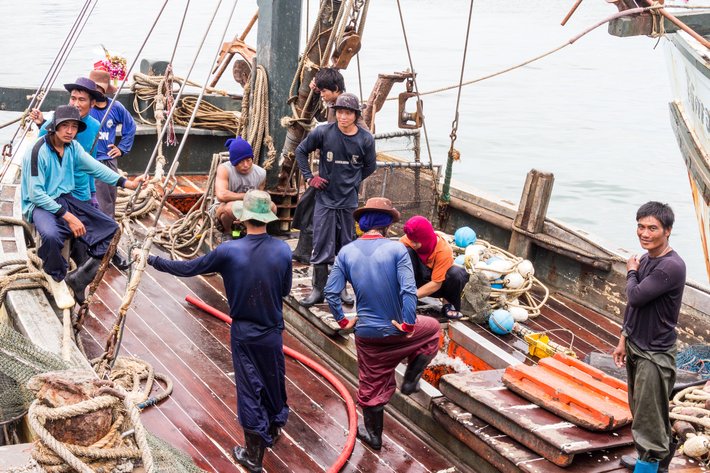
The UK’s Modern Slavery Act (2015) is passed into law in March 2015. In the run up to the Act, we galvanise our members to actively engage with the government to help shape the legislation, in particular a Transparency in Supply Chains (TISC) clause that introduces a company reporting requirement.
Our engagement with the Home Office spans a year and involves a broad cross-section of member companies, NGOs and trade unions. We take part in consultations and events with a clear call for the Act to cover business activities in supply chains. The TISC clause is consequently included and requires all companies operational in the UK with an annual turnover of £36m or more to complete an annual slavery and trafficking statement.
Constructive lobbying shows what can be achieved when companies combine their commercial leverage and engage in positive conversations with governments. The Modern Slavery Act creates a new understanding about ‘good’ corporate behaviour. It also draws a firmer and clearer line between those companies that recognise the value of responsible business, and those that do not.
The addition of the TISC clause is a tribute to the efforts of the Ethical Trading Initiative and many other NGOs and trade unions; and without business adding its voice, it might not be there at all. Aidan McQuade, Director Anti-Slavery International
- In 2015 the UN agrees to work towards 17 Sustainable Development Goals (SDGs) which include Goal 8: to promote sustained, inclusive and sustainable economic growth, full and productive employment, and decent work for all.
2016
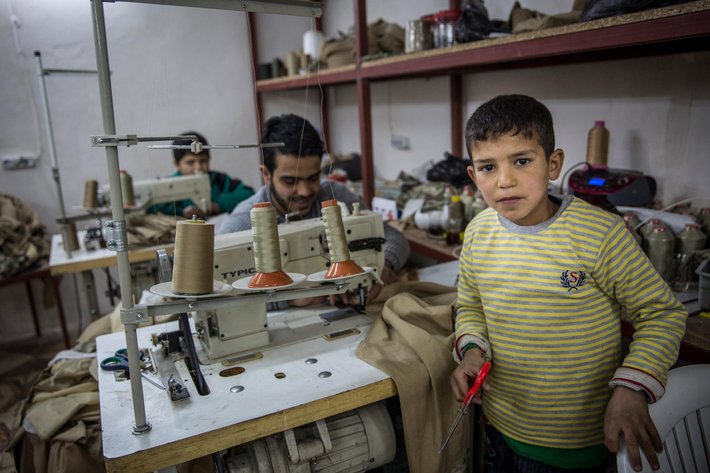
The mass movement of Syrian refugees into Turkey – and their participation in the labour market – makes endemic problems in the country’s garment and footwear industry worse. Initially, we lobby the Turkish authorities to allow refugees access to work permits. With company funding, we also publish guidance for refugees on their employment rights and sponsor a government backed communications campaign.
Migration has always been a feature of labour markets. But in 2016, with over four million of its citizens fleeing conflict, Syria dominates headlines and migrant working re-emerges as a crisis. Working conditions in Turkey (which is the third largest exporter of clothes and footwear to Europe) becomes a particular concern for international brands. Desperate to escape destitution, Syrian and other migrants seek work in Turkey’s informal sector for poverty wages.
From November, with funding from the UK’s Foreign and Commonwealth Office and companies, we put in place a three year business and human rights programme that brings together retailers, local employers and employer organisations, local refugee and international development agencies and local and international trade unions. The aim is to embed reform and encourage better employment conditions for both Syrian and Turkish workers. The aim is also to encourage local leadership.
- Company membership increases to 89.
2017
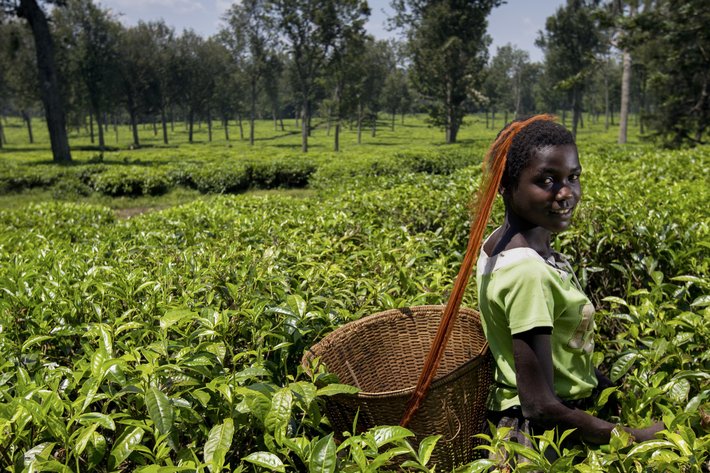
In October, we release our new online company reporting framework. Based on the UNGPs and our due diligence framework, it is designed to help corporate members embrace and incorporate into their policies and practices a greater commitment to transparency and accountability, and to raise their ethical trading standards.
There is an increasing recognition that the complexity of global supply chains is resulting in a profound lack of visibility, and that this brings significant risks; not only for workers but for business too. Against this backdrop, our new digital reporting framework, Perspective, will give corporate members access to new insights through data analytics and other functionalities, with the aim of driving further change in business practices. As it develops, it will incentivise members to think more strategically about their ethical trade activities. It will also give us a better understanding of what our corporate members are doing to concretely address labour rights issues in their supply chains.
- We welcome nine new company members from a range of countries and sectors.
- We run 45 training courses in the UK attracting 1,564 delegates.
- We release new guidance on Modern Slavery, Child Labour and Buying Responsibly.
2018
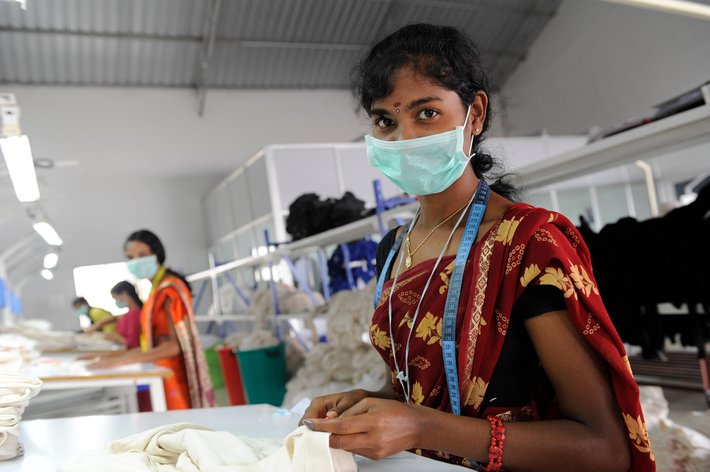
ETI marked its 20th anniversary year with a number of special activities, including a major conference on responsible supply chains attended by over 60 speakers from across the tripartite membership, and over 300 delegates.
2019
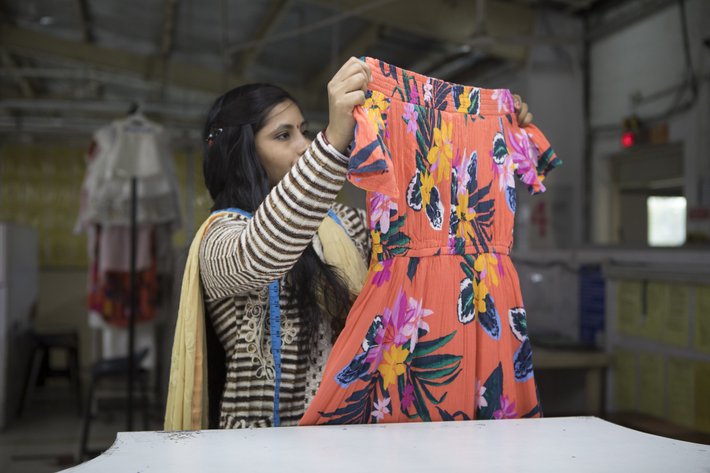
We reached over 15 million workers across 125 countries through our corporate members’ supply chains. We also established an office in India, scaled up our Social Dialogue initiative in Bangladesh, and secured Home Office funding to improve the rights of migrant workers in Malaysia.
2020
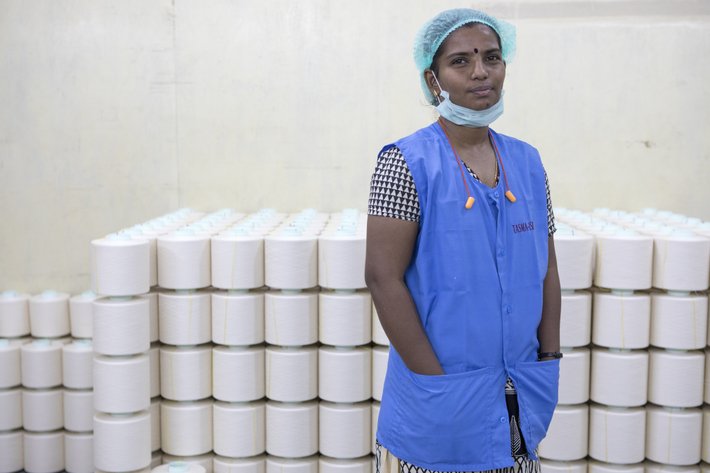
We secured funding for STITCH – the Sustainable Textile Initiative: Together For Change – coalition, bringing together 6 partner organisations to deliver sustainable supply chains across 9 sourcing countries. We delivered extensive Covid-19 support to members in the form of resources, guidance, and collaboration and learning opportunities. And we produced our first annual impact report.
2021
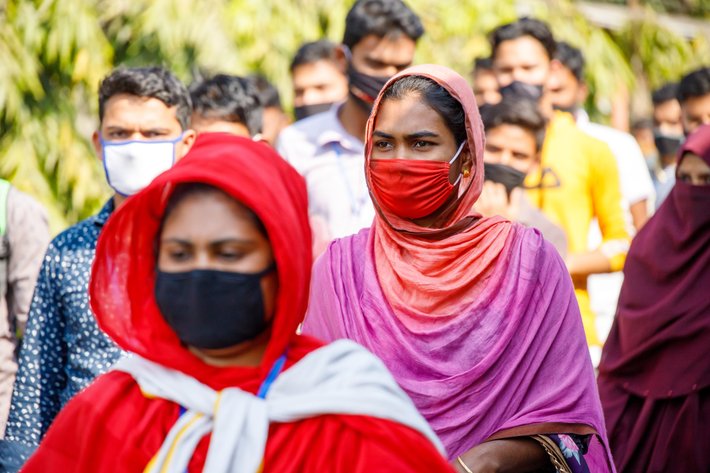
With Covid-19 continuing to disrupt supply chains around the world, we developed guidance to support our members, along with a series of enhanced expectations to help protect workers made vulnerable as a result of the pandemic. We completed two Covid-19 response and recovery projects – one in the garments sector in Bangladesh and one in the agriculture sector in East and Southern Africa.
2022
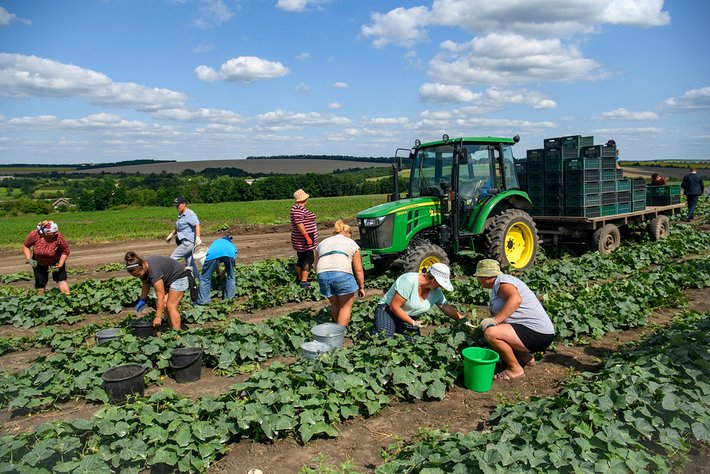
Supply chains continued to face major changes and disruptions in 2022, whether caused by crises such as the Myanmar coup or invasion of Ukraine, emerging technology, or climatic events. We worked to equip our members with the tools to conduct enhanced human rights due diligence in any conflict-affected or high-risk area.
2023
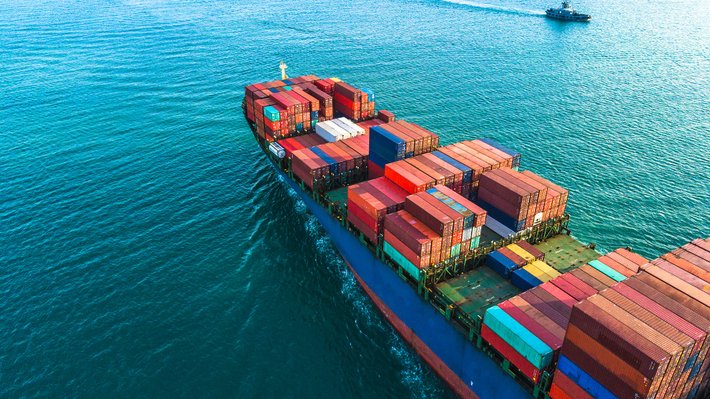
2023 marked the end of the first cycle of company reporting against ETI’s Corporate Transparency Framework. This framework sets out public reporting requirements for our company members. They commit to meeting these requirements and to move towards increased transparency and preparedness for incoming mandatory reporting legislation.
While ethical trade has come a long way since ETI started more than 25 years ago, millions of people still endure inadequate, sometimes shocking conditions at work. This means that we are needed as much now as in 1998. Keep up to date on ethical trade and our work by subscribing to our updates:
For insight, resources and training, head to our main website: www.ethicaltrade.org